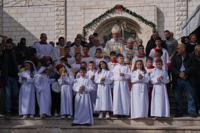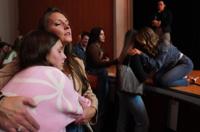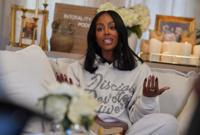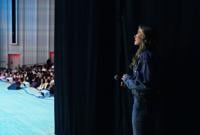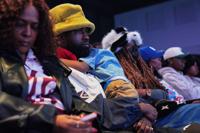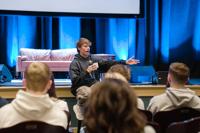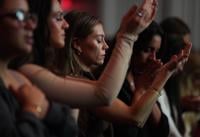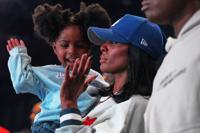BETHLEHEM, West Bank (AP) — Thousands of people flocked to Bethlehem's Manger Square on Christmas Eve as crowds of families and music and deco…
Gaza’s tiny Palestinian Christian community is trying to capture some of the Christmas spirit under a fragile ceasefire in the Israel-Hamas war. One 76-year-old Christian finds hope in his faith while sheltering at Gaza's Holy Family Church compound. Attallah Tarazi says joy over Christ’s birth must surpass the bitterness of war. But for some, the toll is inescapable as grief and uncertainty dampen Christmas cheer. Community members say many Christians have fled Gaza during the war. That has raised concerns about the community's future in the Palestinian territory.
Christian influencers are reaching hundreds of thousands of young people online. They share podcasts and videos with biblical advice on tough questions that aren't always answered in Sunday sermons. Followers relate to millennial and Generation Z influencers more than the buttoned-up pastors of their parents' generation. And these influencers open up about past and present mistakes. Some have theological training and some don't. Some experts worry that they aren't equipped to teach such large audiences and threaten to replace church with podcasts, but many faithful are hopeful that this new group of Christian influencers will galvanize young people who are looking for meaning.
Angela Halili, 29, right, cohost of the Christian podcast, "Girls Gone Bible," prays over a follower during their live show held at the Atlanta Symphony Hall, Friday, Nov. 14, 2025, in Atlanta. (AP Photo/Jessie Wardarski)
Christian podcaster, Megan Ashley, sits on the couch where she films her show, "In Totality," Saturday, Nov. 15, 2025, at her home in Acworth, Ga. (AP Photo/Jessie Wardarski)
Angela Halili, 29, cohost of the Christian podcast, "Girls Gone Bible," stands backstage before their live show as fans and followers sing worship music in the Atlanta Symphony Hall, Friday, Nov. 14, 2025, in Atlanta. (AP Photo/Jessie Wardarski)
Christian podcaster and poet, Preston Perry, second from left, and his wife, Jackie Hill Perry, a Christian rapper and podcaster, third from left, attend service at 2819 Church on Sunday, Nov. 16, 2025, in Atlanta. (AP Photo/Jessie Wardarski)
In this handout photo provided by Divij Vaswani, Christian podcaster, Bryce Crawford, speaks to followers At Lyrical Theater, Sunday, Dec. 14, 2025, in Birmingham, Ala. (Divij Vaswani via AP)
Followers of the Christian podcast, "Girls Gone Bible," cry during the live show held at the Atlanta Symphony Hall, Friday, Nov. 14, 2025, in Atlanta. (AP Photo/Jessie Wardarski)
Christian podcaster, Megan Ashley, center, attends service at 2819 Church on Sunday, Nov. 16, 2025, in Atlanta. (AP Photo/Jessie Wardarski)




